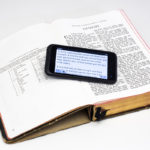- The Explore the Bible lesson for Aug. 16 focuses on Proverbs 31:10-16, 23-31.
Proverbs 31 provides the basis for a famous trope from American evangelical subculture: the “Proverbs 31 woman.” The so-called Proverbs 31 woman is an idealized paragon of wifely virtue, the kind of bride any good evangelical man should dream of marrying and any good evangelical girl should dream of becoming.
As you might expect, this trope can be and has been harmful. It has been used to reinforce the popular yet unbiblical notion that a Christian woman’s highest calling is to be a wife and mother. It also has been used to prescribe strict gender roles for women and wives, many of which are not actually found in the text of Proverbs 31 itself.
This reading of Proverbs 31 has caused many Christians, particularly from my own generation, to look askance at this text and treat it with a degree of trepidation or even distrust. This is unfortunate, however, since Proverbs 31—when read carefully and in context—has much to say that is empowering for women and edifying to both women and men.
Understanding the context
Remember that every biblical text has a cultural background that is quite different than the modern United States. Faithful interpretation and application of Scripture requires recognizing this gap and discerning ways to bridge it.
I mention above that it is unbiblical to insist a Christian woman’s highest calling is to be a wife and mother (1 Corinthians 7:7-8). But in Old Testament times, marriage was a central and fundamental dimension of life for the people of Israel. Remember that Proverbs is a book of wisdom, not absolute and universal rules. Therefore, Proverbs 31 reflects the general attitude that marriage is the norm without turning this norm into an absolute.
Another important detail to note is that Proverbs generally appears to have been written primarily to men. When Proverbs was written, women generally were not taught how to read. What’s more, men held most of the power in society. Again, we must remember that Proverbs assuming this cultural background does not mean this background is normative for all times and places.
Reading Proverbs 31 considering this cultural backdrop can help give us clarity and help us avoid misapplying it in a modern American context that is radically different. We also must read Proverbs 31 in canonical context, not isolating it from the rest of Scripture.
Industriousness
Careful readers will notice one virtue in particular shows up again and again throughout today’s passage: industriousness (31:13-16, 24, 27). The idealized wife of Proverbs is not passive or docile; she is active and vivacious, taking charge of different affairs.
Households in the ancient world were centers of commerce and economics. Ancient people regularly treated their households as “HQ” for their business affairs. Modern people might read 31:27 meaning a wife must stay home while her husband works. But that is not what it meant to “watch over the affairs of the household” in the ancient world.
Sign up for our weekly edition and get all our headlines in your inbox on Thursdays
You’ll notice that the wife “works with eager hands” (31:13), “provides food for her family” (31:15), “considers a field and buys it” then “plants a vineyard” (31:16), and so on. The “Proverbs 31 woman” exercises a great deal of autonomy, authority and industry.
Wisdom
Should women teach and offer wisdom to others, including men? Proverbs 31 seems to think so. “She speaks with wisdom, and faithful instruction is on her tongue” (31:26). The text does not specify to whom the ideal wife speaks or offers instruction. And if she is truly wise and faithful, why would she be restricted regarding to whom she may offer her wise words?
The Old Testament records numerous women to whom God granted wisdom and through whom God gave instruction to his people. Miriam, Deborah and Huldah were all prophets (Exodus 15:20; Judges 4:4; 2 Kings 22:14), and Deborah was a judge—a responsibility that must have required significant wisdom.
If women are not to teach or hold authority over men, as some suggest, then numerous texts of Scripture require explanation. Proverbs 31 is one of those texts. The ideal wife presented on these pages is wise and a good teacher. The text says nothing about the wife being submissive, obedient, quiet, etc.
Fear of the Lord
No quality is more important—for wives or anyone else—than fear of the Lord. “The fear of the Lord is the beginning of wisdom” (9:10). And the ideal wife of Proverbs 31 is a wife who fears the Lord (31:30). This is the source of all the other virtues she possesses.
King Solomon, who is closely associated with the book of Proverbs, is presented as a paragon of wisdom in the Old Testament. But he is hardly the only example of wisdom to be found in Scripture. The ideal wife described in Proverbs 31 is another example, and there have been numerous women like her throughout history.
So, rather than underwriting an unfortunate stereotype, Proverbs 31 serves to celebrate and empower wives everywhere. The true “Proverbs 31 woman” is active and industrious. She is wise and a great teacher. She fears the Lord. She is someone all people should strive to imitate, regardless of gender or marital status. In other words, she is a lot like Jesus.
Joshua Sharp is a writer and Bible teacher living in Waco. He holds a Master of Divinity degree from Truett Theological Seminary.














We seek to connect God’s story and God’s people around the world. To learn more about God’s story, click here.
Send comments and feedback to Eric Black, our editor. For comments to be published, please specify “letter to the editor.” Maximum length for publication is 300 words.